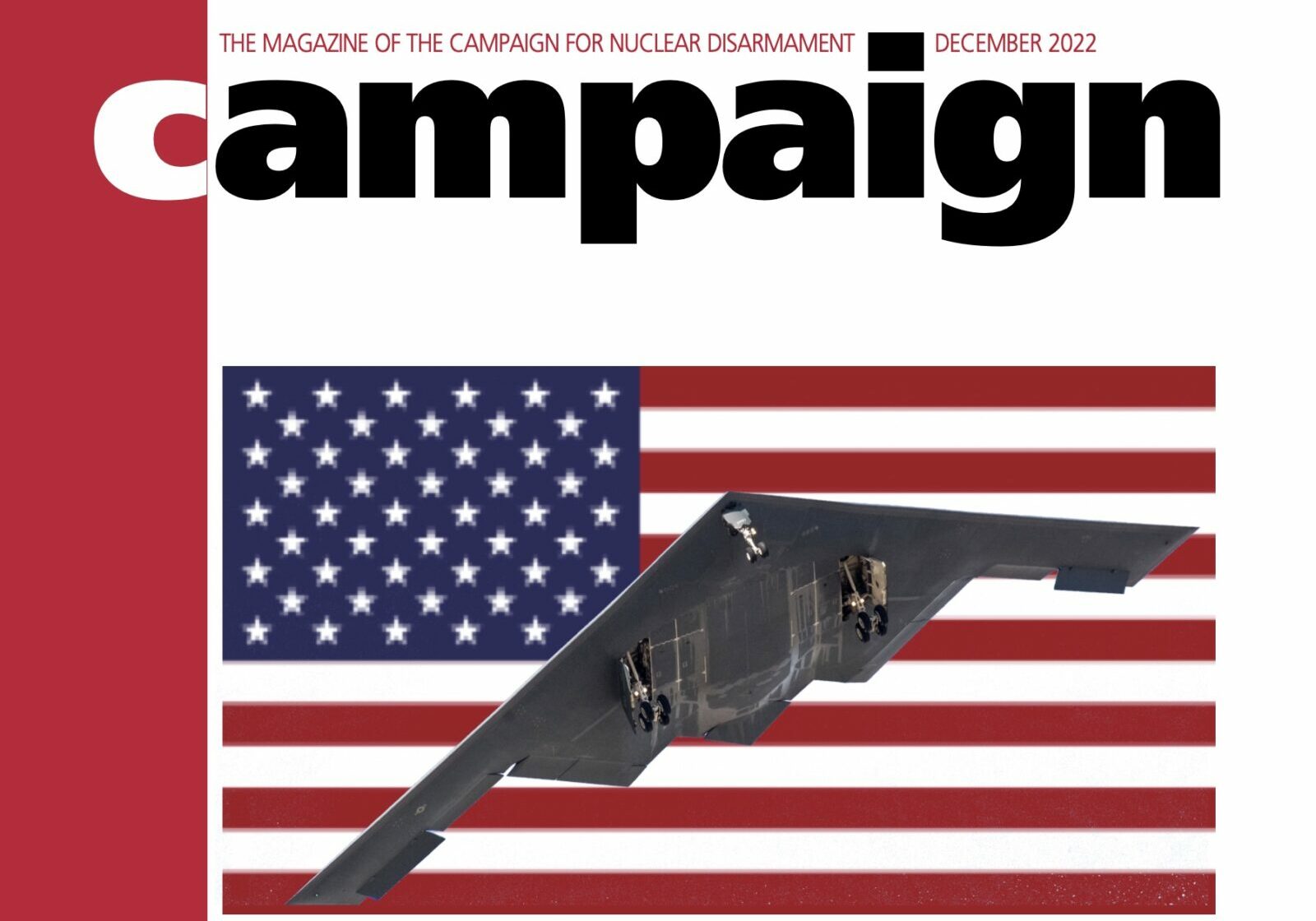US keeps ‘usable’ nukes

Campaign for Nuclear Disarmament (CND) General Secretary Kate Hudson outlines the US government’s latest position paper on nuclear weapons in the current edition of the CND magazine, Campaign.
In October, the Biden administration published its 2022 Nuclear Posture Review (NPR), much later than expected. The delay was reportedly due to differences over significant aspects of US nuclear policy.
Biden’s stated position during his election campaign indicated that former President Trump’s new nuclear weapons would be abandoned, that reliance on nuclear weapons within US military strategy would be reduced, and that arms control would be revived.
He also indicated he would move towards a ‘no-first-use’ and ‘sole purpose’ policy for nuclear weapons; ‘sole purpose’ means that ‘deterring’ and responding to a nuclear attack would be the sole purpose of the US nuclear arsenal rather than the current nuclear posture which envisages its potential use against a range of threats, including an overwhelming cyber-attack.
The document falls far short of the hoped for changes. Trump’s submarine-launched cruise missile system is being cancelled, and the B83-1 gravity bomb is being retired, but Trump’s ‘usable’ nuke, the W76-2, is being retained, in spite of it being described as ‘unnecessary, wasteful and indefensible’ in the Democratic Party manifesto.
No-first-use and sole purpose have not been adopted, and full-scope ‘Triad’ replacement and other nuclear modernisation programmes are taking place.
Hans Kristensen and Matt Korda from the Federation of Atomic Scientists point out that the stated goal is still ‘moving toward a sole purpose declaration’, and they find that ‘compared with previous NPRs, the tone and content come closest to the Obama administration’s NPR from 2010,’ but this seems small comfort in view of the overall picture.
The NPR retains previous ‘negative security assurances’ that the US won’t use or threaten to use nuclear weapons against states that don’t have them, where they are nuclear Non-Proliferation Treaty signatories and in compliance with the terms of that treaty.
But for all other states, ‘there remains a narrow range of contingencies in which U.S. nuclear weapons may still play a role in deterring attacks that have strategic effect against the United States or its Allies and partners.’ Unfortunately that sounds like an opening for nuclear use, even against a non-nuclear weapon state.
The hard-fought debate within the administration on the shape and outcomes of the NPR has been affected by the wider goals of the US National Security Strategy and its orientation to maintaining US global dominance through military might.
The ongoing war in Ukraine has strengthened the hand of those arguing within the administration for increased nuclear weapons production and a strategic role.
In this context, the stated intention of both the US and Russia to negotiate a follow-on to the New START Treaty is to be welcomed, but there is an enormous amount of work required, here and internationally, to bring nuclear weapons states into line with the global majority through the Treaty on the Prohibition of Nuclear Weapons.
Support Beyond Nuclear
Help to ensure a safer, greener and more just world for all

